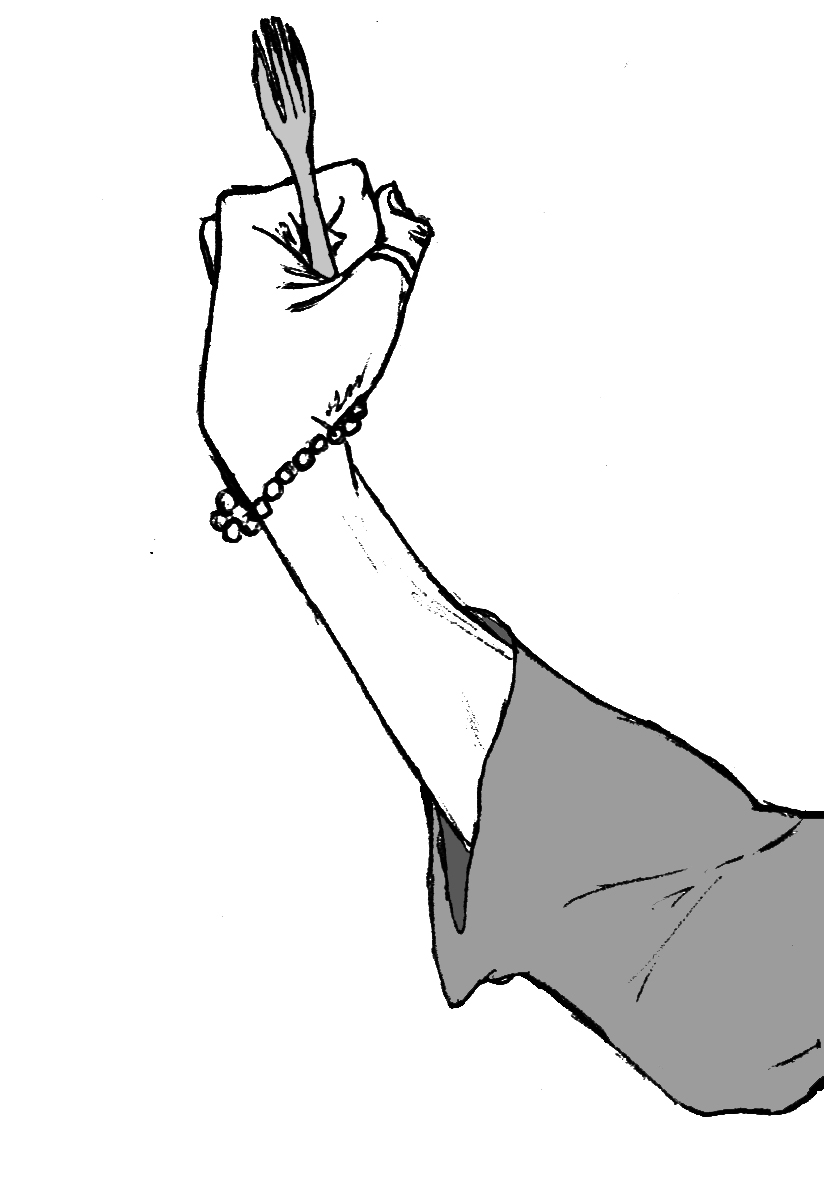On eating disorders: a call to pay attention
October 4, 2019
When I was 16, I started starving myself. Troubled with weight issues—real and imagined—my whole life, I took advantage of a stomach bug I caught while traveling. I began a trend of underfeeding myself, going hungry for hours every day, then working out for upwards of 60 minutes, six to seven days a week. I never ate carbs. My stomach roared indignantly every time I refused seconds at a meal, and I heard myself say, “It’s okay, I don’t need to eat that much.”
When I look at pictures from that time, to the average person, I don’t look terribly unhealthy. I wasn’t underweight on the BMI scale, but I know that I was definitely under a weight that was healthy for me. My skin was sallow and pale, my eyes blank and staring, but a smile played on my lips: the smile of a girl who knows she is finally skinny—and likes it. When I was in the throes of my eating disorder, I used to look forward to mornings, especially mornings after days when I’d starved myself. My favorite thing to do on those days was stand in front of my bathroom mirror, yank my shirt up and examine my flat, empty stomach—daily evidence of what I had achieved.
Despite my pride, though, I was never skinny enough. In my mind, I would never not be fat. During my eating disorder, nobody realized I had one. When I arrived at my extended family’s house for Thanksgiving that year, all I heard was praise, curiosity at how I had achieved my smaller body. When I visited a family friend I hadn’t seen in a while, she examined my figure with admiration and told me, whatever I was doing, to “keep it up.”
It wasn’t until I visited family in the spring of 2015 when somebody finally recognized the problem for what it was. I went on holiday to Edinburgh with my father and my brother. I was slowly returning to eating meat after being a vegetarian for four months—an ill-advised yet temporarily successful endeavor to maintain my skinny figure within my meat-loving family— when my dad, in between his attempts to get me to try haggis and Scotch eggs, noticed something was wrong. On the second day of my visit, my father looked me up and down and said, “Now I understand how you lost all this weight. You don’t eat.”
I don’t remember how I defended myself against this accurate, yet chilling observation. “Yes I do,” I probably said. “I just eat less. You don’t understand. I used to eat too much. I’m finally in control.”
That’s how eating disorders start, whether they involve restricting, bingeing, over-exercising, orthorexia or a combination, like the one I was suffering from. It was a desire for control, or desperation to relinquish it. It took a year after my dad called me out on the damage I’d done to myself for me to attend outpatient treatment. I spent weeks trying to figure out how I’d lost so much control of my life in my desire to regain it. It wasn’t until I sat with my therapist, arguing how if I gained 10 pounds, it would be impossible for anybody to love me, that I realized how distorted my thinking had become. Controlling what I ate wouldn’t change the factors in my life. Controlling my body wouldn’t make anybody approve of me more. The only person’s approval I needed was my own.
Now, I return to that which before made me feel like I needed to control my eating; I eat joyfully, taking pleasure in the food and the people I share it with. I exercise because I want to, because it makes me feel good and is good for me, and for no other reasons. I accept my body in this moment and every moment, sometimes with difficulty, but increasingly, less and less so.
Only one person recognized my shrinking body size as a problem over the course of my eating disorder. It has taken me years to realize just how much our society teaches girls to hate themselves. I am still astounded at how deeply ingrained in my mind poisonous ideas about love, beauty and worth were at the height of my eating disorder.
That is why we need awareness. That is why we need vigilance. When one of your friends or family members drops or gains an alarming amount of weight, don’t dismiss it. When your peers engage in casual body hatred, interrupt and reframe it. When your best friend starts an elimination diet to lose weight, question it. We cannot live as full, unencumbered, actualized versions of ourselves until we love ourselves.
I don’t know where I would be if my father hadn’t brought me back to earth that day when I was 16. All I needed was one person, one moment. I implore you all to pay attention, to be vigilant, to disrupt our collective unhealthy patterns of thought about our bodies and our worth.
Aisha Rickford is a member of the Class of 2020.
Comments
Before submitting a comment, please review our comment policy. Some key points from the policy:
- No hate speech, profanity, disrespectful or threatening comments.
- No personal attacks on reporters.
- Comments must be under 200 words.
- You are strongly encouraged to use a real name or identifier ("Class of '92").
- Any comments made with an email address that does not belong to you will get removed.


A powerful and much-needed perspective on the cycle of eating disorders. One doesn’t need to be severely underweight to show symptoms of disordered eating or an eating disorder. Thank you, Aisha.